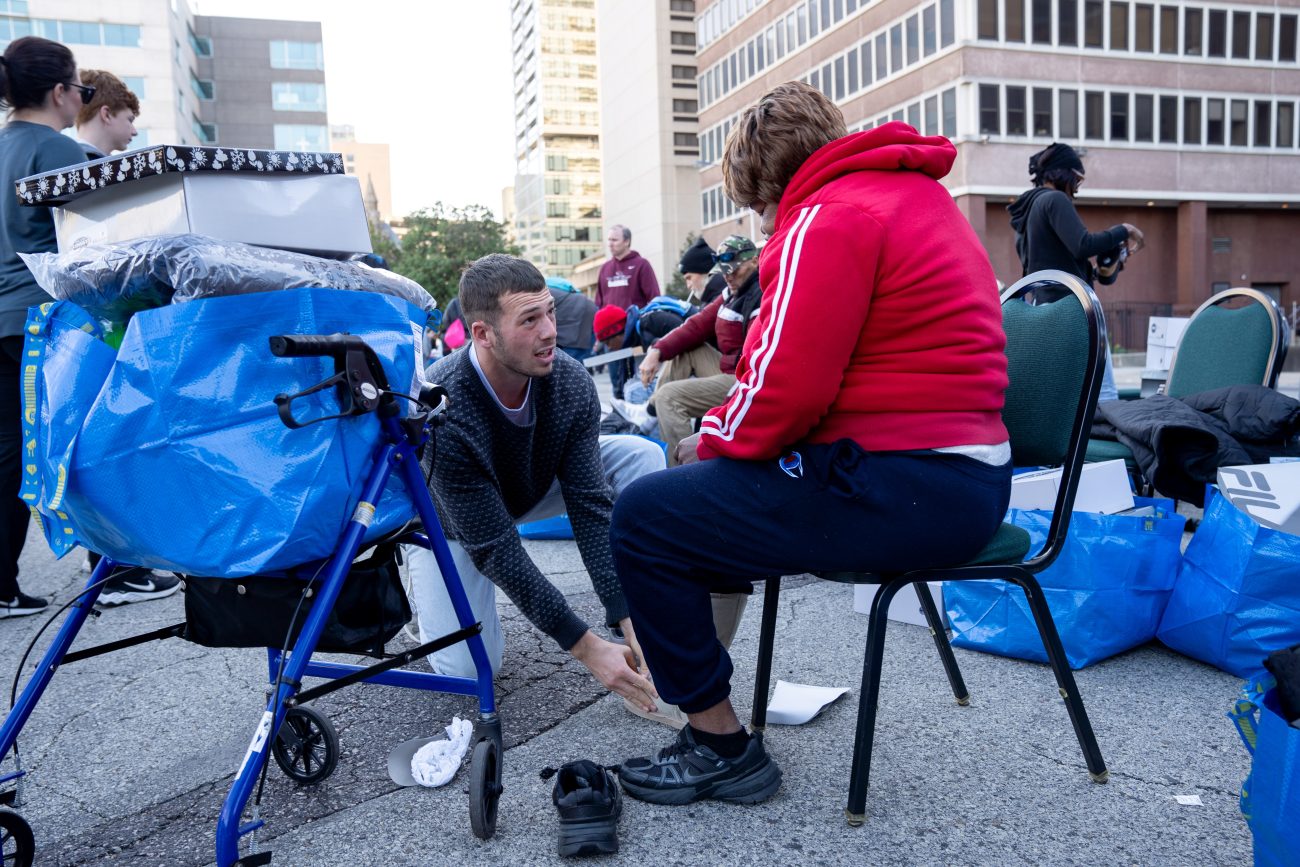Catholic Human Services of the Archdiocese of Philadelphia – the umbrella entity that administers charitable works of mercy through more than 40 programs providing food, housing, and vital support to people throughout the region – announced it is changing its name to Catholic Charities of Philadelphia on May 2.
The organization features a comprehensive range of services that include support for intellectual and developmental disabilities, services to youth and families, support for those experiencing housing insecurity, senior services, and food assistance across more than more than 40 programs making a direct impact on the lives of more than 300,000 people each year.
These many good works connect with the charitable mission of the Catholic Church based in the love of Jesus Christ, according to Heather Huot, secretary and chief executive of Catholic Charities of Philadelphia.
It also represents a return to the organization’s roots, which began in 1912 when the Catholic Charities Office was created in the Archdiocese of Philadelphia and later became known as Catholic Charities of Philadelphia from 1955-1964.
The history of Catholic Charities of Philadelphia dates back to 1797 when Catholics helped people suffering from the yellow fever epidemic in Philadelphia and continued in the 19th century with charitable works by clergy and religious, including St. John Neumann and St. Elizabeth Ann Seton.
While resuming use of the name Catholic Charities of Philadelphia moving forward, the organization will continue to deliver the same well-known, well-loved, and much-needed programs throughout the five counties making up the archdiocese, according to Huot.
These programs include St. John’s Hospice, an emergency shelter and residence for men in transition from homelessness; Divine Providence Village in Delaware County for women with intellectual and developmental disabilities; the Montgomery County food pantry, Martha’s Choice Marketplace; and Casa del Carmen, serving the Latino and Spanish-speaking community of North Philadelphia, to name only a few.
“All will be unified under the name Catholic Charities of Philadelphia,” Huot said, who finds deep meaning in returning to the organization’s former name.
She explains that the word “charity” comes from the Latin word “caritas,” which means love; in this case Christ’s compassionate and pure love, “which is the root of everything we do,” Huot said.
Caritas is also a theme in documents by Pope Benedict XVI, specifically “Deus Caritas Est” (God is Love) and “Caritas in Veritate” (Charity in Truth), which both call for Catholics to practice charity.
One factor that led officials to reexamine the name of the organization was apparent confusion among Catholics over how or whether the more than 40 Catholic agencies spread over multiple divisions such as Catholic Social Services were related, according to Tim Walz, director of marketing for Catholic Charities of Philadelphia.
Research with focus groups found that they preferred the simplified name Catholic Charities of Philadelphia over other options, which clarifies for local Catholics the breadth and diversity of services offered by the Church in this region.
It’s his hope that the change will help everyone better understand what he calls “the great works being done by the Catholic Church,” particularly within the Archdiocese of Philadelphia, and encourage them to “engage with it” and ultimately get “closer to Jesus through works of mercy and charity.”
Catholic Charities of Philadelphia is in the process of rolling out a new logo and a simplified messaging explaining the work that they do with a “four pillars” concept, which includes:
- Nourish the hungry and shelter those experiencing homelessness;
- Strengthen and support at-risk children, youth and families;
- Stabilize and enrich the lives of seniors;
- Empower individuals with intellectual and developmental disabilities.
The change to Catholic Charities of Philadelphia aligns with the Jan. 5 pastoral letter from Archbishop Nelson Pérez to the faithful in the archdiocese, in which he calls for “a spirit of missionary discipleship” to “build up the Church.”
“As the archbishop continues his way forward with his Trust and Hope vision, I think it’s even more important for Catholic Charities of Philadelphia to have a very clear and visible presence in that effort,” said Huot.
Walz is hopeful that through missionary discipleship, more people will get involved with the various works by Catholic Charities of Philadelphia and “get closer to the Lord.”
PREVIOUS: Catholic Charismatic Renewal Hosts Day of Prayer With Holy Spirit May 10
NEXT: Students Show Ingenuity, Faith at STREAM Expo and Robotics Event



Share this story